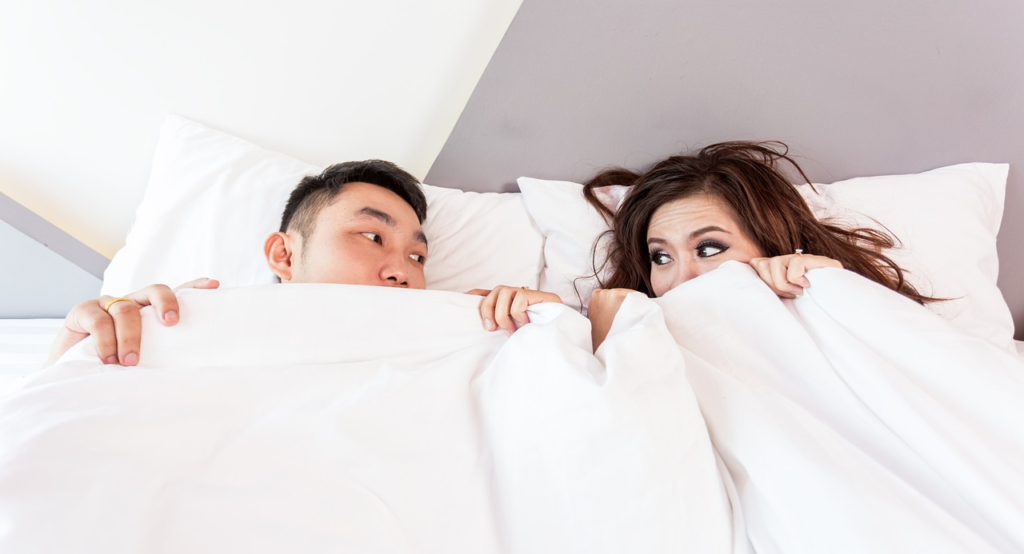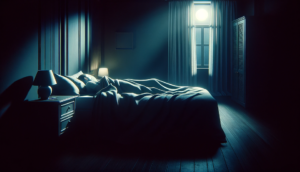
Thanks to people talking more about sleep medicine, there is a growing awareness that getting quality sleep every night is important. More people are beginning to realize the benefits of sleep hygiene and how it can improve their daily lives. Many people now prioritize sleep by having a bedtime routine, exercising regularly, eating sleep-friendly foods, and relaxing before bedtime.
However, the sleep environment is one part of good sleep habits that still needs more attention. You spend one-third of your life sleeping in your bedroom. Too often, people overlook how important the bedroom is for getting great sleep. Many of us use our bedrooms to do all sorts of activities, like watching TV, browsing the internet, talking with our spouses about important decisions, and more.
If sleep is important to you, it’s time to start considering how your bedroom impacts your sleep and methods to improve it.
How to Maximize Your Room for Sleep
1. Change How you Think about Your Room
One of the best ways to make your room better for sleep is to change some things associated with it. Ideally, your room should only be used for sleep and romance. Doing anything else in your room besides those two things can distract you from sleep. But how do you improve your room so that it’s only associated with sleep?
2. Clean Out All the Clutter
Your room should not be your gym, office, or playroom. To begin associating it primarily with sleep, you need to get rid of anything that could distract you. Put the treadmill in another room, get rid of the computer and work desk, and anything else that clutters the bedroom.
Having your bedroom as the place for other activities only makes your brain associate the room with those other things. For example, if your bedroom is where your office is, it can make you anxious about work because you connect the room with your job or studies.
3. Ditch All Electronics
Getting rid of the TV in your bedroom is one of the highest and easiest ROIs for your sleep. TVs emit blue light, which tricks your body into producing less melatonin, AKA the sleep hormone that helps you fall asleep. When there’s light at night, your body produces less melatonin, making it harder to fall asleep.
It’s easy to fall into the habit of watching TV in bed at night. If you’re wrapped up in a show that you’re binging, it can be hard to turn it off. However, watching engaging programs can make it difficult to wind down at the end of the day.
Instead, try to make a habit of only watching TV in another room and making your bedroom a tranquil place exclusively for sleeping or even reading. Set a cut-off time for the TV and give yourself an hour in a dark or dimly lit bedroom to decompress and relax into a restful night of sleep.
You shouldn’t have a cellphone, tablet, laptop, portable game console, or e-reader in the room for the same reasons you shouldn’t have a TV or computer in your bedroom. Most of these devices also emit blue light, and watching, and reading. Put your phone on Do Not Disturb so that any notifications don’t light up the screen.
You should also move your alarm clock across the room and turn it away from you. The light from a digital alarm clock display can be distracting. This helps to reduce anxiety about getting to sleep on time. Instead of constantly checking the clock and counting the number of hours you have left, you can ignore it and try to simply relax. Set the alarm for your wake-up time and put it across the room, facing away so you can’t see the time.
4. Keep Your Room Dark
We’ve already talked about how artificial light can trick your body into thinking it’s daytime instead of night. One of the best things for quality sleep is to significantly reduce or remove light entirely from your bedroom at night. This is especially the case for overhead lights.
If you want to read in bed or talk with your spouse, use a lamp with a dim setting. The idea is to put yourself into a dark environment in the late evening to ensure the right signals are being sent to your body. If all the lights are on and it’s bright, you’re likely going to struggle to sleep as well, even if you’re tired.
Investing in blackout curtains or blinds is also a great idea. Moonlight and street lights can make the room surprisingly bright at night which could interfere with your sleep. Alternatively, you could use sleep masks to block out all light.

5. Keep Your Room Quiet
Noise is another common sleep thief. Whether the sound comes from within the room itself, down the hall, or across the street, noise can prevent us from getting to sleep and, even worse, can rouse us from sleep.
In truth, it’s not so much sound itself that prevents sleep. It is the inconsistency of sound or silence that can be disruptive.
If your sleep environment has noises beyond your control (like noisy neighbors and traffic), try sleeping with a sound machine. These machines make soothing, gentle sounds that help you relax for sleep and drown out other sounds that may wake you up.
Some people say they need music to fall asleep. If that’s you, try setting the music on a timer to turn off a short time after you would normally fall asleep. This way, the music doesn’t just suddenly stop and wake you back up.
6. Keep Your Room Cool
As you start to fall asleep, your body temperature begins to drop. Keeping your room at a cool temperature (between 60-67 degrees) can cool your body and make it easier to fall asleep. Sleeping naked or with less clothing can also help cool your body down.
7. Use Aromatherapy
Research has shown that using certain scents in a room can help promote sleep. Aromatherapy creates a relaxing atmosphere in your room, which can help you wind down to sleep. It’s also good to use as part of your bedtime routine. When you repeat this nightly, your brain is given the cue that it’s time for bed. Lavender and vanilla scents can be great options.
8. Make Your Bed Comfortable
If you’re waking up feeling stiff, numb, or just tired in general, it might be time to replace your mattress and/or pillows. This is especially true if you notice that you sleep better at hotels with more comfortable mattresses. Most mattresses are meant to be used for up to 10 years, but if yours has lumps, saggy spots, rips, or holes, you should consider getting a new one. Similarly, if you find yourself always fluffing and adjusting your pillow through the night, a new pillow could help.
You spend one-third of your life sleeping on your bed, so even though a new bed costs a lot upfront, getting the best one you can afford is worth it. There are lots of mattresses made for different needs. It may be worth going to a store to test out how the different mattresses feel to find the firmness that makes you feel most comfortable.
There are even mattresses designed to reduce the amount of movement transferred across the bed which is ideal if you get disturbed by your spouse moving a lot. You can also find mattresses that are designed for people with allergies that can improve comfort at night.
9. Paint Your Room
A study in Britain showed that the color of your bedroom can impact the amount of sleep you get. In a survey of over 2,000 British homes, it was found that the colors blue, yellow, and green helped people get the most sleep, with blue averaging 7 hours 52 minutes, yellow at 7 hours 40 minutes, and green at 7 hours 36 minutes.
These colors are often thought of as calming and relaxing, which can help put your mind at ease as you try to fall asleep.
At the other end of the spectrum, colors such as purple, brown, and grey can potentially disrupt the amount of sleep you get. The average hours for these colors are 6 hours 12 minutes for grey, 6 hours 5 minutes for brown, and 5 hours 56 minutes for purple.
Theories suggest that purple is an artistic color that stimulates the creative mind, and browns and greys are often associated with dreariness and depression.
10. Use Sleep Tape
For people who snore, have bad breath, or tend to breathe through their mouth at night, using a mouth tape over the lips can improve sleep quality. These tapes gently seal your lips to prevent loud snoring that could wake your partner. They also force you to breathe through your nose instead of your mouth.
A sleep tape reduces stress and lowers blood pressure for more restful sleep. For people who breathe through their mouths, the tape can prevent air dryness and sticky saliva that can cause grogginess when you wake up.
Wrapping Up
As you can tell, many things can rob you of sleep. Fortunately, most of these things can be solved by practicing good sleep habits and prioritizing high-quality sleep. Unfortunately for some people, maximizing their sleep environment still doesn’t help them sleep better. People experiencing ongoing sleep troubles despite improving their sleep environment may need to get a sleep study done by a doctor to check for an underlying disorder.
For residents of Alaska, The Alaska Sleep Clinic is here to help. We have over a decade of experience diagnosing and treating a variety of sleep disorders, including sleep apnea, restless leg syndrome, narcolepsy, and many others. If you’re having trouble sleeping and think it may be a sign of a disorder, click the link below for a free consultation with a sleep specialist.







